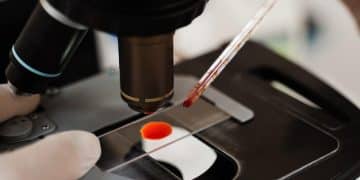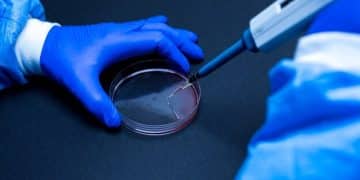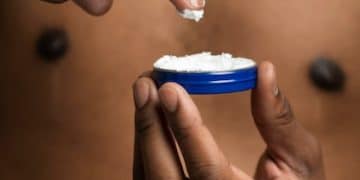The Truth About Male Fertility: 5 Factors Affecting Sperm Count

The Truth About Male Fertility: 5 Factors That Can Impact Your Sperm Count include lifestyle choices like diet and exercise, environmental exposures, medical conditions such as varicocele and infections, hormonal imbalances, and the use of certain medications, all of which can significantly affect sperm production and quality.
Understanding male fertility can seem like navigating a complex maze. The truth is, while genetics play a role, many lifestyle and environmental factors significantly influence sperm count and overall reproductive health. This article, **The Truth About Male Fertility: 5 Factors That Can Impact Your Sperm Count**, aims to demystify these factors, providing you with actionable insights to improve your chances of conceiving.
Understanding Male Fertility: More Than Just Sperm Count
Male fertility is a multifaceted issue, impacting countless couples hoping to start a family. While **sperm count**—the number of sperm cells in a semen sample—is a crucial indicator, it’s not the only factor determining a man’s ability to conceive.
Other equally important aspects include:
- Sperm Motility: The ability of sperm to move efficiently towards the egg.
- Sperm Morphology: The shape and structure of sperm, which affects their ability to penetrate the egg.
- Semen Volume: The amount of semen produced during ejaculation, which carries the sperm.
Therefore, evaluating male fertility requires a comprehensive assessment that considers all these elements. Now, let’s delve into the key factors that can influence these critical aspects of male reproductive health.
Lifestyle Choices and Sperm Health
Our daily habits significantly affect our overall health, and sperm production is no exception. Several lifestyle changes can influence sperm count and quality, for better or worse.
Making informed decisions can greatly improve your fertility potential:
Diet and Nutrition
A balanced diet rich in antioxidants, vitamins, and minerals is essential for healthy sperm production. Foods high in processed fats, sugar, and artificial additives can impair sperm health, affecting both count and motility.
Exercise and Weight Management
Regular physical activity is beneficial, but excessive exercise can have negative effects. Maintaining a healthy weight is key, as both obesity and being underweight can disrupt hormone levels necessary for sperm production.

- Include Antioxidants: Foods like berries, dark leafy greens, and nuts are packed with antioxidants that protect sperm from damage.
- Limit Processed Foods: Reduce intake of processed meats, refined grains, and sugary drinks, as they can negatively impact sperm quality.
- Stay Hydrated: Adequate hydration is essential for semen production and overall reproductive health.
Prioritizing a balanced diet and regular exercise are fundamental steps in enhancing male fertility, laying a solid foundation for reproductive success.
Environmental Factors That Can Impact Fertility
Our environment exposes us to various substances that can affect sperm health. These environmental factors range from everyday chemicals to radiation, all of which can disrupt reproductive processes.
Let’s explore the most significant environmental threats to male fertility and how to minimize your exposure:
Exposure to Toxins and Chemicals
Many chemicals used in everyday products—such as pesticides, plastics, and industrial pollutants—can act as endocrine disruptors. These disruptors interfere with hormone production and regulation, leading to decreased sperm count and impaired sperm function.
Radiation Exposure
Prolonged exposure to radiation, whether from medical treatments or environmental sources, can damage sperm cells and DNA. This is particularly concerning, as DNA damage in sperm can lead to developmental issues in offspring.
- Limit Chemical Exposure: Choose organic foods and use BPA-free containers to reduce exposure to harmful chemicals.
- Avoid Excessive Heat: Spending prolonged periods in hot environments, like saunas or hot tubs, can negatively affect sperm production.
- Protect from Radiation: If you work in an environment with radiation, ensure you follow safety protocols and use appropriate protective gear.
By managing exposure to environmental toxins and radiation, you can protect your sperm health and improve your reproductive prospects. Awareness and proactive steps are key to safeguarding your fertility.
Medical Conditions and Male Fertility

Certain medical conditions can significantly impact male fertility. These conditions can range from acute infections to chronic diseases, all of which can interfere with sperm production and function.
Being aware of these medical factors enables timely intervention and management, ultimately enhancing fertility outcomes:
Varicocele
A varicocele is an enlargement of the veins within the scrotum, similar to varicose veins in the leg. This condition can increase the temperature around the testicles, impairing sperm production and quality.
Infections
Infections such as epididymitis or sexually transmitted infections (STIs) can cause inflammation and scarring in the reproductive tract, leading to blockages that prevent sperm from being ejaculated. STIs can directly damage sperm cells, impacting their ability to fertilize an egg.
Early diagnosis and treatment of medical conditions are vital for preserving male fertility. Regular check-ups and prompt medical attention can help mitigate the impact of these conditions on your ability to conceive.
Hormonal Imbalances’ Impact on Sperm Count
Hormones play a pivotal role in regulating sperm production. Hormonal imbalances can disrupt this intricate process, leading to reduced sperm count and impaired sperm function. Understanding the impact of hormonal imbalances is essential for addressing male infertility.
Let’s examine the key hormonal factors that can influence male fertility:
The Role of Testosterone
Testosterone is the primary male sex hormone responsible for the development and maintenance of male reproductive tissues and secondary sexual characteristics. Imbalances in testosterone levels can directly affect sperm production.
The Impact of Other Hormones
Other hormones, such as follicle-stimulating hormone (FSH) and luteinizing hormone (LH), also play vital roles in regulating sperm production. Disruptions in these hormones can lead to decreased sperm count and impaired sperm quality.
- Consult a Specialist: If you suspect a hormonal imbalance, consult an endocrinologist or a fertility specialist for a thorough evaluation.
- Hormone Therapy: Depending on the specific hormonal imbalance, hormone therapy may be recommended to restore hormonal balance and improve sperm production.
- Lifestyle Adjustments: Maintaining a healthy lifestyle, including a balanced diet and regular exercise, can help regulate hormone levels naturally.
Addressing hormonal imbalances through medical interventions and lifestyle adjustments can significantly improve male fertility. Recognizing the hormonal component of male infertility is a crucial step toward effective treatment and improved reproductive outcomes.
Medications and Their Effect on Male Fertility
Certain medications can significantly impact male fertility, either directly affecting sperm production or interfering with hormonal balance. Awareness of these potential side effects is crucial for anyone trying to conceive. Understanding the effects of medications on male fertility can help you make informed decisions about your treatment options.
Let’s explore the common medications that can affect sperm count and quality:
Prescription Drugs
Several prescription drugs, including certain antibiotics, antidepressants, and blood pressure medications, can impair sperm production. Chemotherapy and radiation therapy, often used in cancer treatment, can cause significant damage to sperm cells.
Over-the-Counter Medications
Even over-the-counter medications, such as certain pain relievers and anti-inflammatory drugs, can affect hormone levels and sperm quality if taken for extended periods.
- Discuss Medications with Your Doctor: Always inform your doctor about your plans to conceive, so they can evaluate the potential impact of prescribed medications on your fertility.
- Explore Alternatives: If possible, explore alternative medications with fewer side effects on sperm production.
- Consider Sperm Banking: If you need to undergo treatments that may affect your fertility, consider sperm banking to preserve your options.
By staying informed and communicating with your healthcare provider, you can minimize the negative impact of medications on your fertility. Taking proactive steps ensures you are making the best decisions for your reproductive health.
| Key Point | Brief Description |
|---|---|
| 🌱 Diet & Nutrition | Balanced diet boosts sperm health. Include antioxidants, limit processed foods, and stay hydrated. |
| 🧪 Environmental Toxins | Limit exposure to chemicals and radiation. Use organic foods and protect against excessive heat. |
| 🏥 Medical Conditions | Address varicoceles and infections promptly. Regular check-ups are vital for early diagnosis. |
| 💊 Medications | Discuss medications with your doctor and explore alternatives to minimize impact on sperm. |
Frequently Asked Questions
▼
A normal sperm count is generally considered to be at least 15 million sperm per milliliter of semen. Lower counts may indicate fertility issues, but other factors also play a significant role.
▼
Yes, lifestyle changes such as adopting a healthy diet, exercising regularly, and avoiding smoking and excessive alcohol consumption can significantly improve sperm count and overall sperm quality.
▼
Exposure to environmental toxins like pesticides, chemicals, and radiation can damage sperm cells and disrupt hormone levels, leading to decreased sperm count and impaired sperm function.
▼
Yes, foods rich in antioxidants, such as fruits, vegetables, and nuts, can protect sperm from damage. Foods with zinc and selenium are also beneficial for sperm production and overall reproductive health.
▼
If you and your partner have been trying to conceive for over a year without success, or if you have any concerns about your reproductive health, it is advisable to consult a doctor or fertility specialist for evaluation.
Conclusion
Understanding the factors impacting male fertility is crucial for those planning to start a family. By making informed lifestyle choices, minimizing environmental exposures, and addressing any underlying medical conditions or hormonal imbalances, you can significantly improve your sperm count and overall reproductive health. Remember, proactive steps and regular consultations with healthcare professionals are key to achieving your fertility goals.





